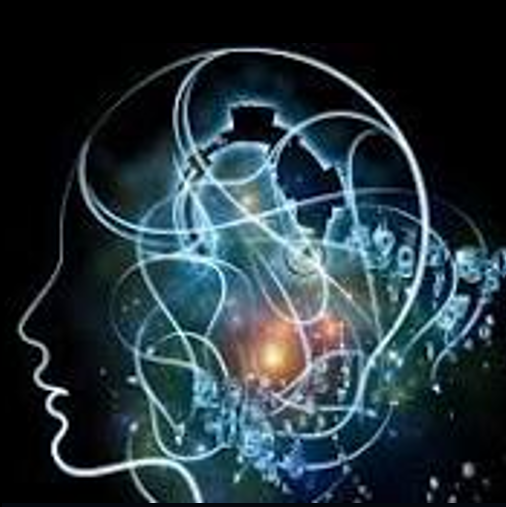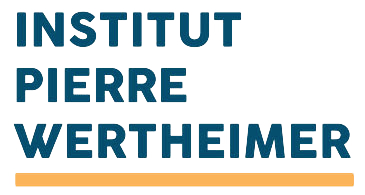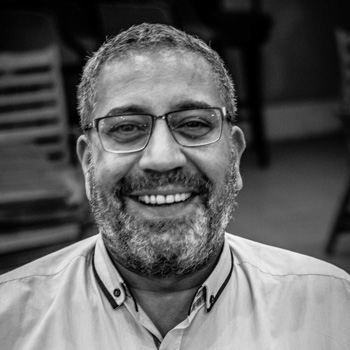Pr Mohamed Saoud
Service de psychiatrie adulte
Le service de neuro-psychiatrie a pour missions l’évaluation et la prise en charge des patients hospitalisés ou consultants aux HCL et souffrant de difficultés psychiatriques ou psychologiques en lien, ou antérieures, à leur maladie. Les équipes, composées de psychiatres et de psychologues interviennent dans tous les services de l’établissement, à la demande du patient, relayée par l’équipe soignante ou à la demande de l’équipe soignante, après en avoir informé le patient. Un accompagnement de l’entourage familial des patients peut également être proposé en fonction des situations.

Thématiques
Les axes de recherche du Pr SAOUD et de ses équipes concernent les Troubles Neurologiques Fonctionnel (TNF)
Ces différents axes sont:
En Clinique: la caractérisation clinique des différents phénotypes de TNF par recueil d’une base de données.
En Psychopathologie: Process-TNF (Sujet de Doctorat en neuropsychologie, Mme Annabelle BOUAMMARI)
L’ Objectif principal du projet est de comparer les propriétés psychométriques (scores aux outils de mesure de processus psychologiques) des phénotypes principaux de TNF.
Les Objectif(s) secondaire(s) sont d’étudier la relation entre ces scores (processus psychologiques) et les scores d’intensité des symptômes neurologiques fonctionnels, et étudier la relation entre ces scores (processus psychologique) et les scores de qualité de vie rapportés par les patients.
En Neuropsychologie: Etude comparative des troubles de la mémoire de source chez des patients atteints de TNF avec d’autres populations (volontaires sains et des patients atteints de pathologies neuropsychiatriques), en collaboration avec l’Equipe PsyR2, CRNL.
Sur un axe Thérapeutique:
- Investigateur associé dans le PHRCN 2018 CONVERSTIM : Efficacité de la stimulation du cortex préfrontal dorso-latéral par tDCS chez les patients atteints de trouble de conversion moteur. Essai multicentrique randomisé en double aveugle. RIPH Catégorie 2, étude interventionnelle, randomisée, d’innocuité/d’efficacité, affectation parallèle, en double aveugle (Investigateur principal : Dr Ismael Conejero, Nîmes)
- Etude de faisabilité : Thérapie miroir dans les TNF en collaboration avec le Pr Jacques LUAUTE
- Collaboration avec C2Care pour le développement de la thérapie miroir en réalité virtuelle.
Structures d’appuis et équipes de recherche
- Rattachement à l’Equipe PsyR2, CRNL
- Cellule Mutualisée de Recherche Clinique (CMRC)
- Membre du programme de recherche Axe neurologie, handicap & santé mentale ; Axe génétique & maladies rares
- Membre de l’Institut Pierre Wertheimer (IPW)
Publications
1. Psychological impact on healthcare workers in obstetrics and gynecology in France in 18 French University Hospitals during the first Covid-19 lockdown: a prospective observational study.
Chene G, Nohuz E, Cerruto E, Moret S, Atallah A, Saoud M, French Covid-Pro-Impact Consortium.
J Psychosom Obstet Gynaecol. (2022) — Résumé
Purpose: To assess the level of stress and anxiety in healthcare workers in the departments of obstetrics and gynecology in France during and after the first Covid-19 lockdown.
Methods: Two web-based cross-sectional surveys using several validated questionnaires (the HAD scale, the PSS-10 questionnaire and the Short Form 12 Questionnaire [SF-12]) were proposed to all staff of obstetrics and gynecologic departments in 18 French university hospitals.
Results: A total of 1565 respondents answered the first questionnaire and 1109 completed the second survey. Respondents reported greater levels of stress and impaired mental quality of life during the lockdown, followed by a significant improvement after the end of lockdown (respectively p < .0001 and p = .01). Anxiety was significantly higher among the older participants during the lockdown (p = .008). The potential putative factors related to impaired mental health status were personal protective equipment (PPE) deficit (<.0001), the fear of contracting the virus from the workplace and transmitting to their families (<.0001) and concerns about information given by media and hospitals (<.0001).
Conclusions: Understanding the heavy mental repercussions of the Covid-19 pandemic on healthcare workers could lead to the identification of high-risk in medical and non-medical staff and the implementation of targeted psychological monitoring program.
Trial registration: ClinicalTrials.gov NCT04375644.
Keywords: Covid-19; Mental health; anxiety; gynecology; obstetrics; stress.
2. Need for systematic screening for IGD in adolescent psychiatric inpatients
Gauthier B, Rolland B, Berthiller J, Tatou M, Charvet D, Gansel Y, Fleury R, Saoud M, Laconi S
Encephale (2020) — Résumé
Psychiatric comorbidities are frequent in adolescents with internet gaming disorder (IGD). In contrast, the proportion of IGD among adolescents hospitalized for a psychiatric disorder has not been documented yet. In addition, parental ratings of IGD could be useful for diagnosis, but very few data exist on this issue. The objectives of this study were to: (1) assess the prevalence of IGD among adolescent psychiatric inpatients, using the Ten-Item Internet Gaming Disorder Test (IGDT-10), and (2) assess the parental version developed for this study (IGDT-10-P). A total of 102 patients, aged from 12 to 17 years old, were included from four psychiatric units of the French region Auvergne-Rhône-Alpes, during a 6-month inclusion period. Adolescents completed the IGDT-10 while one of their parents completed the IGDT-10-P. The inclusion rate among the eligible population was 57.95%. The prevalence of IGD in the sample, based on the IGDT-10 and IGDT-10-P, was 6.00% and 12.79%, respectively. Psychometric features of the IGDT-10-P indicated excellent internal consistency, a good model fit to the one factor model in confirmatory factor analysis, a strong correlation with gaming time, and a moderate correlation with the IGDT-10. Our results support the need for a systematic screening of IGD among adolescents hospitalized for a psychiatric disorder. Future studies should aim to confirm and explain the prevalence gap between self- and parent-reported criteria.
Keywords: Adolescent; Comorbidité psychiatrique; Internet gaming disorder; Parent; Prevalence; Prévalence; Psychiatric comorbidities.; Trouble du jeu vidéo.
3. Early Detection of Patients at Risk of Developing a Post-Traumatic Stress Disorder After an ICU Stay
Wawer E, Viprey M, Floccard B, Saoud M, Subtil F, Wafa H, Rheims E, Rimmelé T, Poulet E.
Crit Care Med . (2020) — Résumé
Objectives: To evaluate the diagnostic accuracy of the Impact Event Scale-Revisited assessed following ICU discharge to predict the emergence of post-traumatic stress disorder symptoms at 3 months.
Design: Prospective cohort study.
Setting: Three medical or surgical ICU of a French university hospital (Lyon, France).
Patients: Patients greater than or equal to 18 years old, leaving ICU after greater than or equal to 2 nights of stay, between September 2017 and April 2018.
Interventions: Patients completed the Impact Event Scale-Revisited and the Peritraumatic Dissociative Experiences Questionnaire within 8 days after ICU discharge and the Impact Event Scale-Revisited again at 3 months by phone. Patients having an Impact Event Scale-Revisited greater than or equal to 35 at 3 months were considered as having post-traumatic stress disorder symptoms.
Measurements and main results: Among the 208 patients screened, 174 were included and 145 reassessed by phone at 3 months. Among the patients included at baseline, 43% presented symptoms of acute stress. At 3 months, 13% had an Impact Event Scale-Revisited greater than or equal to 35 and 17% had a score between 12 and 34. Regarding the performance of the Impact Event Scale-Revisited performed within 8 days after the ICU discharge to predict post-traumatic stress disorder symptoms at 3 months, the area under the curve was 0.90 (95% CI, 0.80-0.99), and an Impact Event Scale-Revisited greater than or equal to 12 had a sensitivity of 90%, a specificity of 71%, a positive predictive value of 32%, and a negative predictive value of 98%. History of anxiety disorder odds ratio = 3.7 (95% CI, 1.24-11.05; p = 0.02) and Impact Event Scale-Revisited greater than or equal to 12 odds ratio = 16.57 (95% CI, 3.59-76.46; p < 0.001) were identified as risk factors for post-traumatic stress disorder symptoms.
Conclusions: Impact Event Scale-Revisited assessed at ICU discharge has a good ability for the detection of patients at risk of developing post-traumatic stress disorder symptoms. Patients with history of anxiety disorder and those presenting acute stress symptoms at ICU discharge are more at risk to develop post-traumatic stress disorder symptoms.
4. Does the Beck Cognitive Insight Scale predict change in delusional beliefs?
Penzenstadler L, Chatton A, Lecomte T, Huguelet P, Lecardeur L, Azoulay S, Bartolomei J, Brazo P, Murys E, Poupart F, Rouvière S, Parabiaghi A, Saoud M, Favrod J, Khazaal Y.
Psychol Psychother . (2020) — Résumé
Objectives: The Beck Cognitive Insight Scale (BCIS) is composed of two subscales, self-reflectiveness and self-certainty, assessing reflectiveness and openness to feedback, and mental flexibility. Delusions have previously been associated with low cognitive insight. The aim of this study was to determine whether changes in BCIS scores predict changes in delusional beliefs.
Methods: The study is a secondary analysis of a previously published randomized controlled trial. All participants had a psychotic disorder diagnosis and received treatment as usual, with half of them also receiving the cognitive restructuring intervention ‘Michael’s game’. Participants were assessed at three different times: at baseline (T1), at 3 months (T2), and at 9 months (T3). Cognitive insight was measured with the BCIS, belief flexibility with the Maudsley assessment of delusions schedule (MADS), and psychotic symptoms with the Brief Psychiatric Rating Scale (BPRS).
Results: A total of 172 participants took part in the trial. After using generalized estimating equation (GEE) modelling, we observed (1) significant main effects of BCIS self-certainty and Time and (2) significant Time × BCIS self-certainty and Time × treatment group interaction effects on belief flexibility. Improvements in self-certainty (i.e., decrease in scores) were associated with more changes in conviction over time, more accommodation, improved ability in ignoring or rejecting a hypothetical contradiction and increased use of verification of facts. Medication and BPRS total scores were controlled for in the GEE analyses at their baseline values.
Conclusions: Overall improvement in BCIS self-certainty scores over time predicted better treatment outcomes as assessed with MADS items.
Practitioner points: Treatments for patients with psychosis should focus on improving cognitive insight as this seems to improve overall treatment outcomes and recovery. The Beck Cognitive Insight Scale can be used to measure changes during treatment and can predict treatment outcomes.
Keywords: Beck Cognitive Insight Scale; cognitive behaviour therapy; delusional beliefs; process of change; schizophrenia; serious games.
5. Well-informed but not aware: The P.A.C.T.® psychoeducation program for schizophrenia improves knowledge about, but not insight into, the illness
Dondé C, Senn M, Eche J, Kallel L, Saoud M, Brunelin J.
Asian J Psychiatr (2019) — Résumé
Background: Most individuals with schizophrenia (SZ) have little to no insight regarding the presence of their illness. Psychoeducational programs are state-of-the-art interventions that consist in delivering stabilized patients with accurate knowledge about their illness and its treatment. Evidence suggests a significant relationship between levels of illness-related knowledge and insight in SZ patients. However, the effect of psychoeducation on these related outcomes needs to be explored further.
Methods: In this open label study involving 30 French-speaking patients with SZ, we propose to compare levels of knowledge and insight before and after the French P.A.C.T.® psychoeducation program to investigate how this approach affects both outcomes. Knowledge levels were measured with the self-questionnaire « What do I know? ». Insight levels were measured using the Scale to Assess Unawareness of Mental Disorder (SUMD). Symptoms were assessed with the Positive And Negative Syndrome Scale (PANSS).
Results: A large significant improvement of knowledge was observed (p < 0.001; d = 0.77). By contrast, the analysis reported no significant effect of psychoeducation on insight (p = 0.86; d = 0.07). PANSS total scores were significantly decreased after treatment (p = 0.001; d = 0.66).
Conclusions: Although the P.A.C.T.® program is a promising tool for improving illness-related knowledge in SZ patients, its use is not sufficient to significantly improve insight levels.
Keywords: Cognition; Insight; Knowledge; Psychoeducation; Schizophrenia.
6. Transcranial Direct Current Stimulation for Obsessive-Compulsive Disorder: A Systematic Review.
Brunelin J, Mondino M, Bation R, Palm U, Saoud M, Poulet E.
Brain Sci (2018) — Résumé
Despite the advances in psychopharmacology and established psychotherapeutic interventions, more than 40% of patients with obsessive-compulsive disorder (OCD) do not respond to conventional treatment approaches. Transcranial direct current stimulation (tDCS) has been recently proposed as a therapeutic tool to alleviate treatment-resistant symptoms in patients with OCD. The aim of this review was to provide a comprehensive overview of the current state of the art and future clinical applications of tDCS in patients with OCD. A literature search conducted on the PubMed database following PRISMA guidelines and completed by a manual search yielded 12 results: eight case reports, three open-label studies (with 5, 8, and 42 participants), and one randomized trial with two active conditions (12 patients). There was no sham-controlled study. A total of 77 patients received active tDCS with a large diversity of electrode montages mainly targeting the dorsolateral prefrontal cortex, the orbitofrontal cortex or the (pre-) supplementary motor area. Despite methodological limitations and the heterogeneity of stimulation parameters, tDCS appears to be a promising tool to decrease obsessive-compulsive symptoms as well as comorbid depression and anxiety in patients with treatment-resistant OCD. Further sham-controlled studies are needed to confirm these preliminary results.
Keywords: OCD; brain stimulation; compulsion; neuromodulation; obsession; tDCS.
7. Management of psychiatric complications in unrelated donor before unrelated peripheral hematopoietic stem cell collections.
Hequet O, Mialou V, Audat F, Wattel E, Chapel V, Revesz D, Jouet JP, Fisseaux B, Saoud M, Michallet.
J Blood Med (2016) — Résumé
Allogeneic hematopoietic stem cell transplantation can efficiently treat patients with severe hematological diseases. A human leukocyte antigen-compatible donor is required for performing transplantation. The occurrence of unexpected acute severe diseases in a donor can compromise the feasibility of allogeneic hematopoietic stem cell transplantation. However, when a severe health problem occurs in a donor while the recipient has already received a conditioning regimen, hematologists have to find the best solutions for the recipient, while the team in charge of the donor has to find the best medical solutions for the donor. We describe here the occurrence of psychiatric acute complications in an unrelated donor while the myeloablative conditioning regimen had already been given to the recipient. We report the successive decisions that were made in an emergency based upon the expertise of physicians specialized in hematology, apheresis, cell therapy, and psychiatry to preserve the donor’s health and recipient’s life.
Keywords: CD34+ cells; harvest; hematopoietic stem cells; mobilization; psychiatric complication; unrelated donor.


